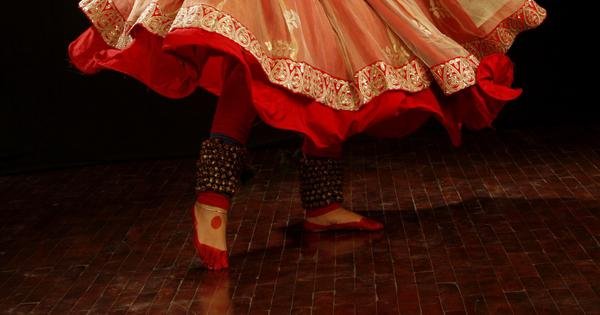Tabla Accompaniment in Kathak Dance: A Unique Art
The Special Role of Tabla in Kathak
Tabla accompaniment in Kathak dance stands out from vocal or instrumental performances. The nritta, or pure dance segment, depends on pre-set rhythmic compositions involving gestures, movements, and footwork. The tabla player must create bols that echo the footwork while preserving the overall aesthetic appeal generated by gestures and movements.
Bond Between Dancers and Tabla Players
Some tabla players practice with the same dancers over time, becoming familiar with their repertoire. However, a dancer may perform with a new tabla player if they are well-versed in Kathak vocabulary and can apply it spontaneously.
Tabla Solos During Nritta
During the nritta section, the tabla player also performs a few solo passages, which may be inspired by the dance repertoire or strictly incorporate tabla compositions.
Presenting Repertoire in Teentaal
Dancers may choose to present repertoire in various taals, but this episode focuses on tracks featuring the sixteen-matra Teentaal. Typically, the performance moves from slow to fast speeds in a single taal, although dancers may sometimes present the repertoire in a single taal only at a particular speed.
Roshan Kumari’s Recital
The first track showcases a recital by Roshan Kumari, a famous Jaipur gharana Kathak dancer, accompanied by Samta Prasad, a Banaras gharana master on the tabla. Unconventionally, the introductory sequence by the tabla player is presented without the melodic accompaniment of the nagma or lehra provided by the sarangi and/or harmonium.
- Tabla solo passage at 11 minutes
- Pakhawaj accompaniment and recitation by Fakir Mohammad Khan
Gopi Krishna, Birju Maharaj, and Durga Lal’s Performance
The second recording features Gopi Krishna, accompanied by Birju Maharaj on the tabla and Durga Lal on the pakhawaj. The performance begins with a brief introductory rhythmic section, once again without the nagma or lehra.
About the Author
Aneesh Pradhan is one of India’s top tabla players, known as a performer, teacher, composer, and scholar of Hindustani music. Visit his website here. This article is based on Pradhan’s book Tabla: A Performer’s Perspective.



